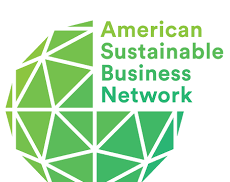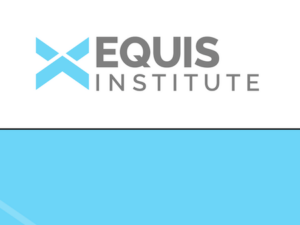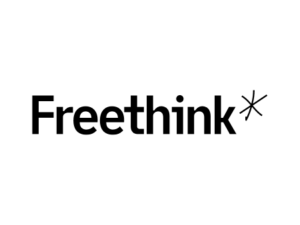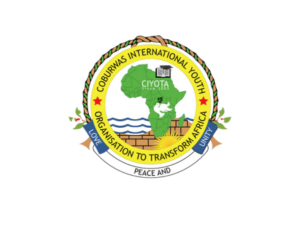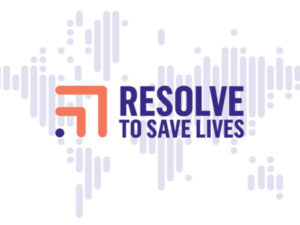The American Sustainable Business Network develops and advocates solutions for policymakers, business leaders, and investors that create a framework around responsible business and responsible investing.
David Levine and Derek Peebles of The American Sustainable Business Network spoke with Priyanka Shankar on April 14, 2023. Click here to read the full conversation with insights highlighted.
Priyanka Shankar: Could you please introduce yourself and tell me a little bit about your work and what problem you’re addressing in society?
David Levine: My name is David Levine, and I am the Co-Founder and President of the American Sustainable Business Network. The network brings together efforts to build a movement of business organizations, companies, social enterprises, and others to drive a more just and sustainable economy. We have built out an infrastructure that’s doing work at the national level of the United States, but also at the state and local level, in order to be able to build a community of businesses that consider themselves, socially responsible, green, sustainable, regenerative, or that represent women, are BIPOC-run enterprises, just a great diversity of folks that are values-based. In other words, businesses that are operating with more than just profit as their motivation.
It’s people, planet, profit, and purpose that drives the kind of enterprises that we work with, and we look at it from the lens of building that B2B network. We look at it in terms of changing the narrative of driving access to capital investment and agency for communities that have long been excluded from the economy, and then changing the rules, creating public policies that will actually help us get to a more systemic change in this context of a just and sustainable economy.
Priyanka Shankar: How do you measure your impact? What is success for you in the business?
David Levine: We measure success in a number of different ways, but one is to look at whether we are doing the job of making sure that a diverse community of enterprises, of businesses, of leaders, can participate and have their authentic voices be the ones that help define the direction that we’re taking. The more inclusive we are, the more we help people shape the conversation, shape the decision making, and shape the strategies. That’s one way we measure success, when we’re doing that authentically and with true inclusive participation.
Two is we measure it by the amount of money that our investors are able to move towards the right types of enterprises. Three, we look at what policies we are shaping, advocating for, and actually helping to pass. For the American Sustainable Business Network, that has looked like the ability to work on reshaping the Toxic Substance Control Act, which was the equivalent to the Clean Air Act and the Clean Water Act, but around safer chemicals. Those policies in the United States were severely broken and our effort to bring a business voice to counter the chemical industry had an impact. We were able to craft and drive legislation to help us move towards being able to at least regulate some of the more toxic chemicals that are so pervasive in society.
We also worked on the Main Street Employee Ownership Plan. That bill enabled us to drive greater worker ownership in this country, and we believe that other business forms are so essential to be able to drive a more just economy. Our work to support the recent passage of the Infrastructure Bill and the Inflation Reduction Act, which will bring billions of dollars into the economy and hopefully drive it towards a more sustainable, regenerative, renewable, just economy. We measure it by the rules that we’re able to change and the policies that we’re able to put in place.
We also use strategies from business amicus briefs so that we can engage at the level of the judiciary and make sure that those decisions are at least informed by a different perspective than the one that has been so pervasive, and has been brought to us by the US Chamber of Commerce, the National Federation of Independent Businesses, and the American Legislative Exchange Council. Those are based on an extractive short-term profit economic paradigm. We want to bring the voices and perspective of small and medium enterprises, of diverse enterprises, of those that are committed to this quadruple bottom line.
Priyanka Shankar: How do you deal with challenges? I’m sure there must be a couple of them in the work that you do, and how do you deal with them?
David Levine: The American Sustainable Business Network, along with other organizations that have been at this work for the last number of decades, have been able to create a framework around responsible business and responsible investing. We’ve seen the uprising as particularly led by the fossil fuel industry in this anti-environmental, social and governance criteria for investing. It’s both a sign that the work that we and others have been doing over the last number of decades has worked, that we’ve been able to drive the business community, the investor community, towards the more responsible practices, towards the recognition, that it’s more than the quarterly return that a business should measure itself by.
The opposition has meant that we have to confront it, in terms of the lobbying going on, the legislation that states across the country are trying to pass, and the many other tactics that are being put forward right now. Our ability to work as a broader movement of responsible, conscious, and values-based businesses, from the microenterprises to the larger companies, all working together to articulate that if we want a free and fair market, a level playing field, an opportunity for all businesses to succeed, then we need to recognize that we need to have the choice to use those criteria that also are good for business, are good for the workers, are good for our communities, and are good for the earth. That kind of work of both articulating what’s wrong with the obstacles that have come before us, like this anti-ESG work that is being brought forward now, and to provide the solutions for businesses so that they can be a force for good, and they can do well by doing good.
I would say that we’re at a key moment in history where the many organizations that have emerged across all different sectors, and all different sorts of stakeholders, need to come together. We need to be able to work collaboratively with each other. We need to recognize the diverse gifts that we can each bring to this work, and figure out how to create that which is greater than the sum of the parts. We’re doing that with the business community through the American Sustainable Business Network, but we need to also partner with the many others that are out there, so we can have that aggregated voice and power to bring us to a more just and sustainable economy and society.
My colleague Derek can come in now and share more with you about economic inclusion.
Derek Peebles: Hi, my name is Derek Peebles, and I’m the Senior Director of Policy and Advocacy for our Inclusive Economy portfolio at the American Sustainable Business Network, and the inclusive Economy work that was designed a couple years ago. It’s fairly new compared to the rest of our portfolios, but we saw a significant need to build a network of inclusion and focus on local economic impacts as a way to build an inclusive economy. We focus on building peer networks, strengthening place-based financing, and bringing together community leaders and entrepreneurs of color to engage in how we can create better policy, typically around access to capital.
Priyanka Shankar: How do you measure success in this aspect, and what does impact mean here?
Derek Peebles: Impact from a broad view is where we’re able to create conditions where people on the margins are able to participate in the economy. We measure success by looking at different communities where we’re able to assess local economic multipliers. What I mean by that is how many times is the dollar recirculating in a community? We’re able to show through data that the more dollars that recirculate in a community, the more jobs are created and sustained over time. We’re able to measure that through local economic multipliers. For example, if a small business is looking to hire employees, then we encourage them and work with workforce development agencies so that small business owner can hire locally, because we understand that if an employee is able to work in the community that they live in, then it is more likely that those dollars are not going to leave the community.
Priyanka Shankar: What makes your approach different from other organizations?
Derek Peebles: We approach inclusion by focusing on the assets and the gifts of the individuals in the communities that we’re trying to serve. Oftentimes, organizations and nonprofits go into a community with this idea that they know what’s right and that they know what the community needs to be successful, to thrive and be healthy. They often get it wrong, and there’s limited change with that approach. I think what makes us different with the inclusive economy work is that we’re approaching our work through participatory action, and identifying the assets and the gifts of the individuals that are already in a community, and then we focus on what they care about, on what they believe is possible for their local economy. Then our job is to provide resources, educate and share knowledge that allows communities to lead their own efforts to achieve sustainability.
Priyanka Shankar: Are there lessons other organizations can learn from you?
Derek Peebles: We typically do case studies and we’re involved with several networks that are doing research around economic well being. We conduct these case studies ourselves in the communities that we serve, and knowledge sharing is very important to understanding what an inclusive economy can look like, because it’s not going to look the same everywhere. Ultimately, an inclusive economy allows for more participation from people that have been exiled from the current economic system. There are plenty of economic studies that we could share, particularly around economic well being, which includes a lot of health determinants as well.
Priyanka Shankar: Thank you for talking with me today.
Click here to read the full conversation with insights highlighted.
Priyanka Shankar is an independent journalist currently based in Brussels. She mainly covers stories about human rights, migration and Europe’s relations with Asia. Outside a newsroom you can find her rambling along mountains or scuba diving.
* This interview has been edited and condensed.

